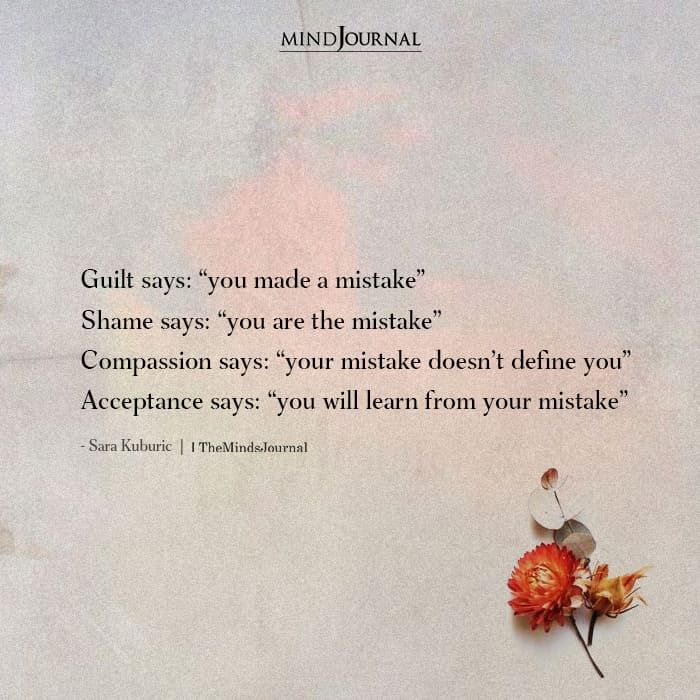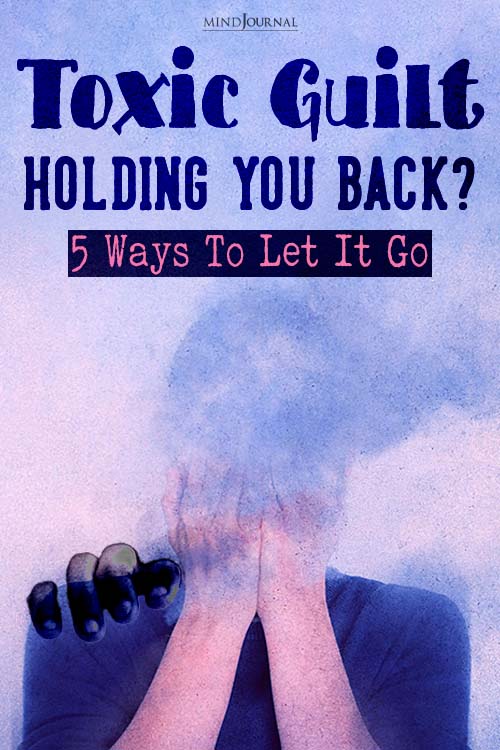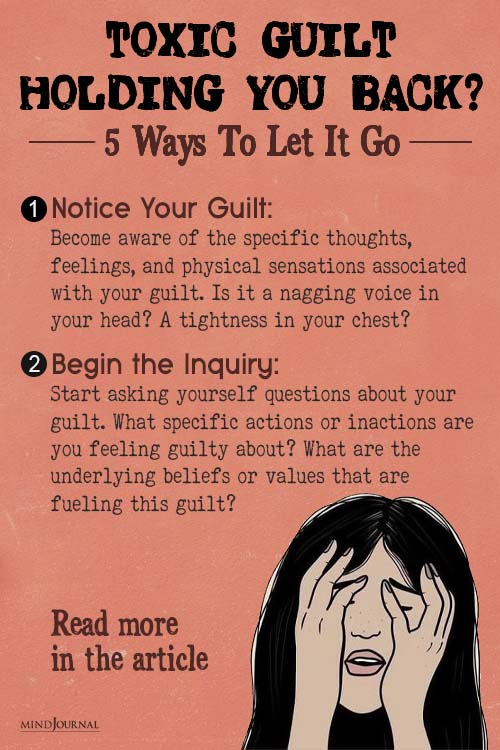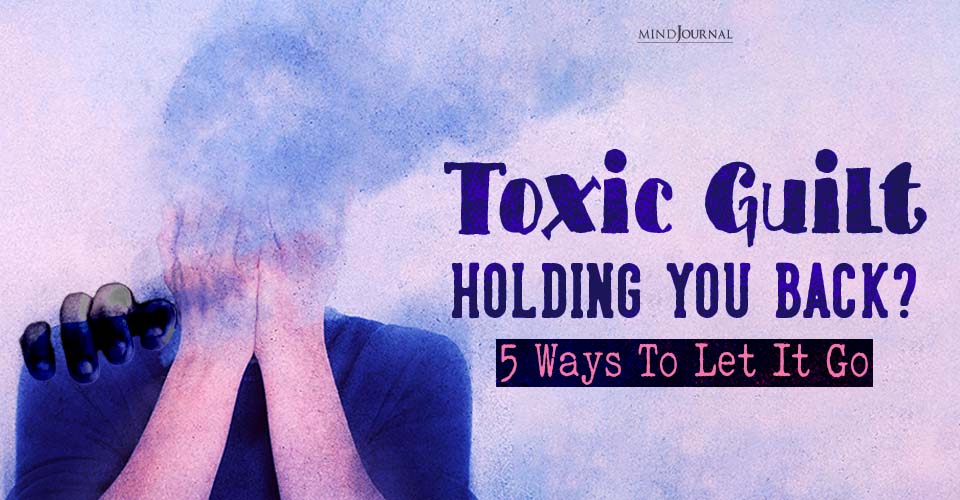Toxic guilt can be an overwhelming feeling that holds you back, but learning how to release toxic guilt is essential for emotional healing. By understanding toxic guilt and addressing it head-on, you can break free from its grip and move toward a healthier mindset.
Guilt is an adaptive, natural response that stabilizes relationships. It is good to apologize and mean it when we have committed an offense.
Some think that the most enlightened among us can do without guilt; after thinking something through, a simple, heartfelt apology would do and replace the nagging feeling of having done something wrong. But this is discounting feelings.
Feelings are significantly faster than thoughts (See “Your Brain Is Like a Liver”) and alert us to something in our environment to which we ought to respond.
However, those of us who grow wiser and have learned to let go of ego have a chance to offend less and mend quicker, practically without any guilt. Indeed, a glimpse of guilt could do the trick.
Even though some guilt is natural, it can be an overwhelmingly negative force that zaps us of much-needed energy. Guilt can run amok in our psyche, causing inner tensions, exhaustion, and depression. In extreme cases, guilt can make us afraid to live.
Related: What Is Irrational Guilt And How Can You Overcome It?
Some people are so guilt-ridden that they grow resentful of those who trigger their guilt. Somebody once said that guilt is fear of punishment. Nobody wants to live in fear.
Eventually, defensiveness might set it, which is a rebellion against too much punishment, imagined or real. Often, this reaction is acted out without much awareness, as fear is an experience so uncomfortable, we’d rather not deal with it.
What is there to do?
5 Ways to Release Toxic Guilt
1. Notice Your Guilt.
It is much easier to find fault with the one who triggers guilt as opposed to simply notice, “I am feeling guilty, tense, and a bit afraid.” Just noticing guilt can reduce its toxic power dramatically.

2. Begin the Inquiry.
After becoming aware of the guilt you generate, begin to ask questions like these:
- What happened that triggered my guilt?
- What exactly do I feel guilty about?
- Am I afraid of punishment? If yes, what kind of punishment?
- Where does my guilt come from?
- Could an apology make a positive difference?
- Is my guilt tied to real or imagined events?
- Do I exaggerate?
- Does my guilt stem from present events or from a painful past?
- Is my guilt tied to old pain that I am carrying with me for many years?
- Who would I be without my guilt?
- What purpose does my guilt serve in my life?
3. Tolerate the Discomfort.
Curiosity can lead to the origin of the fear or the pain that underlines it. It is important to uphold the attention once we touch on the origin.
If this is too painful or disorienting, a professional health care provider can help. It is important to be supported when uncovering deeply rooted feelings. Guilt, if old, is notorious and difficult to release.
Our happiness — as in “being fully engaged in the present moment”(1) — is at stake.
Look at guilt as a form of anxiety, causing us to feel inadequate and/or deserving of blame. We worry when we are wracked with guilt, which closes the heart to others as well as to ourselves.
It is difficult, if not impossible to feel kind towards ourselves and guilty at the same time. By learning to tolerate the underlying fears and the original pain, we begin to relax with the discomfort and reopen the gates to self-compassion.
4. Ask for Forgiveness and/or Forgive Yourself.
Apologies are an art form and need to be practiced by all of us. However, if an apology is not warranted or does not make a difference, guilt can often be released when we embrace what is and forgive ourselves.
For example, a face-blind person, like myself — I cannot identify people by their faces — might occasionally hurt others by failing to acknowledge them. Or a funny, extraverted person might hurt a sensitive person with a joke.
We cannot change our essence or the past, but we can be understanding, apologize, and/or let ourselves off the hook. Kindness to self and others often has the power to release the most notorious guilt.
Related: How To Free Yourself From A Guilt Complex: 18 Mindful Practices To Try Today
5. Individuate.
Sometimes we cannot let go of guilt because we have melded together with others. This happens to codependent people who try to rescue and enable others compulsively. It also happens to parents.
It is essential for our happiness to detach and let others go their own and separate ways, even if it includes suffering. In any community, we should be supportive of each other. Parents especially must give an unspeakable amount.
However. We might feel as if our kids were our “own flesh and blood” — which they actually are not. They have sprung from our bodies and exist in a symbiosis at first but they are already a separate human with a completely different set of genes and encounters.

You are a river, as is everybody. Notice your separateness. We are all connected but not the same. Acknowledge that others flow in a slightly different direction and with their own rapids. They must flow with their ups and downs as you must flow.
As you accept nature as nature is, the guilt of excessive responsibility can finally flow out of you. Let it happen.
Want to know more about toxic guilt and how to release toxic guilt? Check this video out below!
© 2020 Andrea F. Polard, PsyD. All Rights Reserved.
References:
1) A definition of happiness can be found in "A Unified Theory of Happiness: An East-Meets-West Approach to Fully Loving Your Life" by Andrea F. Polard.
Written By Andrea F. Polard Psy.D.
Originally Appeared On Psychology Today











Leave a Reply